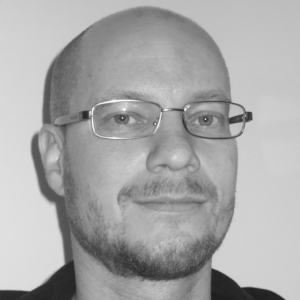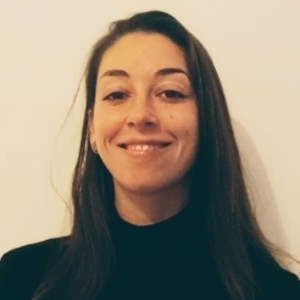Projekt C02
Versteckte Variabilität und ihre Grenzen beim Ausdruck von Bedeutung. Evidenz aus westafrikanischen Sprachen
PI(s): Prof. Dr. Malte Zimmermann
C02 untersucht Grenzen Versteckter Variabilität in Struktur und Interpretation oberflächen-identischer Strukturen in westafrikanischen Sprachen. Ziel ist die Identifizierung der Grenzen von Variabilität im Bedeutungsausdruck, welche sich durch (i.) auszudrückende Bedeutung, (ii.) grammatische Beschränkungen und (iii.) allgemeine Beschränkungen an der Syntax-Semantik-Schnittstelle (Konkurrenz, Blockade) ergeben. Untersucht werden Phänomene im N-Bereich (bloße NPn und DPn), V-Bereich (Serielle Verbkonstruktionen, exceed-Komparative) und im C-Bereich (Kontrafaktiva, Anteriorität, schwache Notwendigkeit).
in Phase 2
Grenzen der cross-linguistischen Variabilität in der semantischen Interpretation unterspezifizierter Strukturen
PI(s): Prof. Dr. Malte Zimmermann
Das Projekt untersucht weiterhin die Grenzen von Variabilität in der semantischen Interpretation zwischen Sprachverwendern und Sprachen (German, English, Akan, Hausa, Igbo, Medumba). Der Schwerpunkt liegt auf der Interpretation von unterspezifizierten Strukturen in Sätzen mit Doppelquantifikation (Skopusambiguität) und mit fehlenden funktionalen Elementen (Artikelauslassung in DP und serielle Verbkonstruktionen). Solche Sätze bieten eine Testgelegenheit für versteckte Variabilität, wobei identische Oberflächenkonfigurationen unterschiedlich hergeleitet werden, was durch unterschiedliche Interpretationen angezeigt wird. Daten werden durch Elizitierung und Experimente erhoben, und die quantitativen Daten werden rechnergestützt modelliert.
in Phase 1
Grenzen der Variabilität in der semantischen Interpretation
PI(s): Prof. Dr Malte Zimmermann & Prof. Dr. Alexander Koller
Teilprojekt C02 widmet sich grammatischen, kognitiven und kommunikationsbasierten Faktoren, welche Variabilität in der semantischen Interpretation bedingen. Zentrales empirisches Ziel ist die experimentelle Untersuchung von Variabilitätstypen und den Grenzen von Variabilität bei der semantischen Interpretation. Aus einer sprachvergleichenden Perspektive (Dt., Engl., Akan/Kwa/Noger-Congo) adressiert das Projekt zwei zentrale Fragen.
Die erste Frage betrifft die Grenzen von Variabilität in der Interpretation zwischen Sprecherinnen und innerhalb derselben Sprecherinnen (Variabilitätstypen 3 & 4): Welche Strategien verwenden Sprecher*innen, um die Interpretation von Äußerungen an die aktuellen kommunikativen Ziele anzupassen, und bei der Bewertung von Äußerungen als geglückt und wahr in einer bestimmten Kommunikationssituation? Der empirische und theoretische Fokus liegt auf der (Nicht-)Verfügbarkeit von strukturellen, lexikalischen, und evaluativen Anpassungsprozessen bei vier verschiedenen Phänomenen, welche vier Arbeitspaketen zugewiesen sind:
- relativer Quantorenskopus und die Möglichkeit von inversem Skopis (AP1)
- die Zulässigkeit und Interpretation von bloßen zählbaren SG Nominalargumenten (AP2)
- die Akkomodierbarkeit von Existenzpräsuppositionen (AP3)
- und die Interpretation von kontrafaktischen Konditionalsätzen (AP4).
Im Projekt werden die (Nicht-)Verfügbarkeit von Interpretationen und Anpassungsprozessen einerseits in Relation zu unterschiedlichen Kommunikationssituationen und andererseits in Relation zu Beschränkungen des zugrundeliegenden grammatischen Systems untersucht. Von besonderem Interesse ist die Identifizierung (i.) von Interpretationsprozessen, welche systematisch über Sprecher*innen und Experimentsituationen hin ausgeschlossen sind; und (ii.) von Interpretationsprozessen, die auf struktureller Reanalyse basieren. Die Identifizierung solcher Fälle gibt Aufschluss über die Schnittstelle von Syntax und Semantik. Insbesondere hilft sie bei der Evaluierung der Hypothese, dass es sich bei der Syntax um ein weitgehend autonomes strukturbildendes System handelt, welches immun gegenüber Anforderungen des interpretativen Systems (Semantik) ist.
Die zweite Frage dient demselben Ziel durch die Hinzufügung einer sprachvergleichenden Perspektive. Es wird untersucht, welche Arten von Variabilität in der semantischen Interpretation sprachübergreifend konstant sind, und welche eher sprachspezifisch und durch das jeweilige grammatische System beschränkt sind (Variabilitätstyp 1). Ein besonderer Fokus liegt auf Unterschieden in der Wortstellung (fest vs. flexibel), im Inventar von Funktionswörtern zum Ausdruck von Definitheit und Indefinitheit, und in der funktionalen Interpretation von Definitheitsmarkierern in den verschiedenen Sprachen. Die empirischen Daten werden mit Hilfe von Offline-Experimenten erhoben und statistisch analysiert.
Zusammenfassend wird das Projekt zu einem besseren Verständnis der Frage beitragen, welche Aspekte von Variabilität in der Interpretation von nicht-linguistischen Faktoren wie kommunikativen Anforderungen und Verarbeitungsfaktoren abhängen, und welche von den grammatischen Beschränkungen der zugrundeliegenden linguistischen Systeme lizenziert bzw. blockiert werden.
Mitarbeiter:innen



